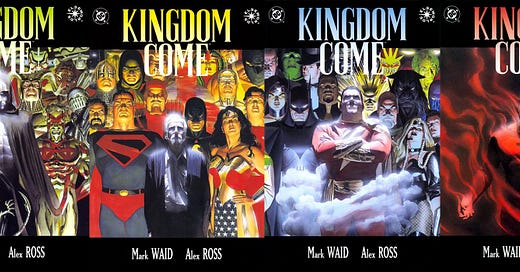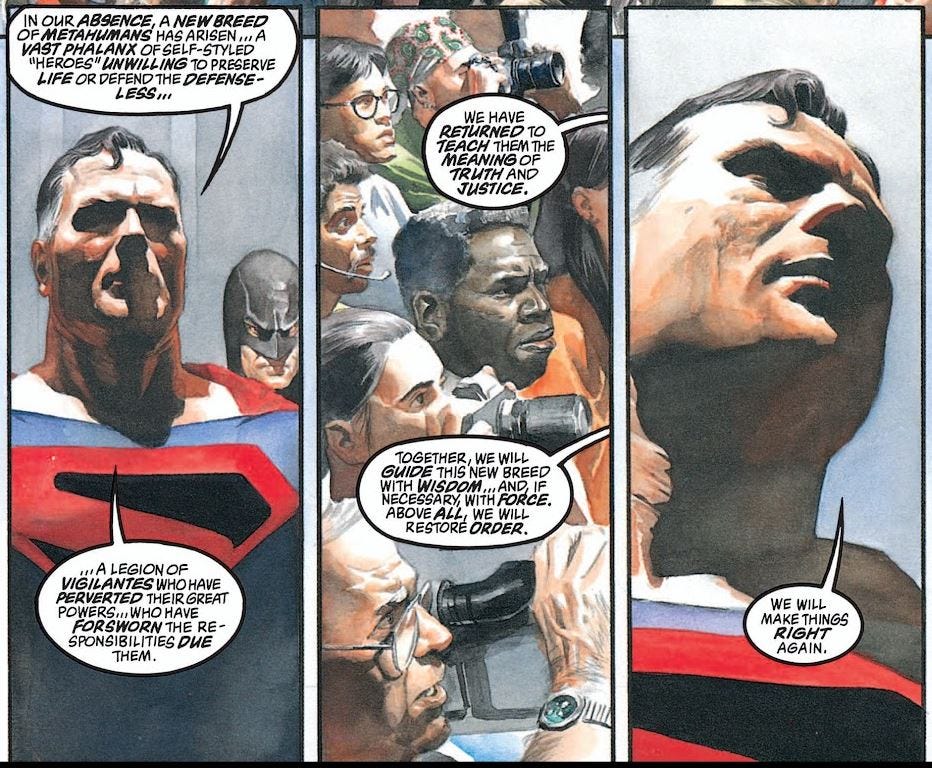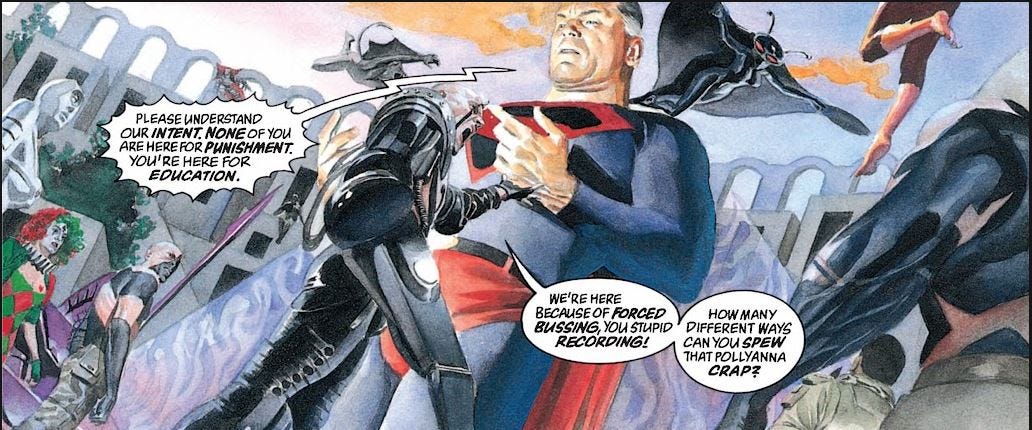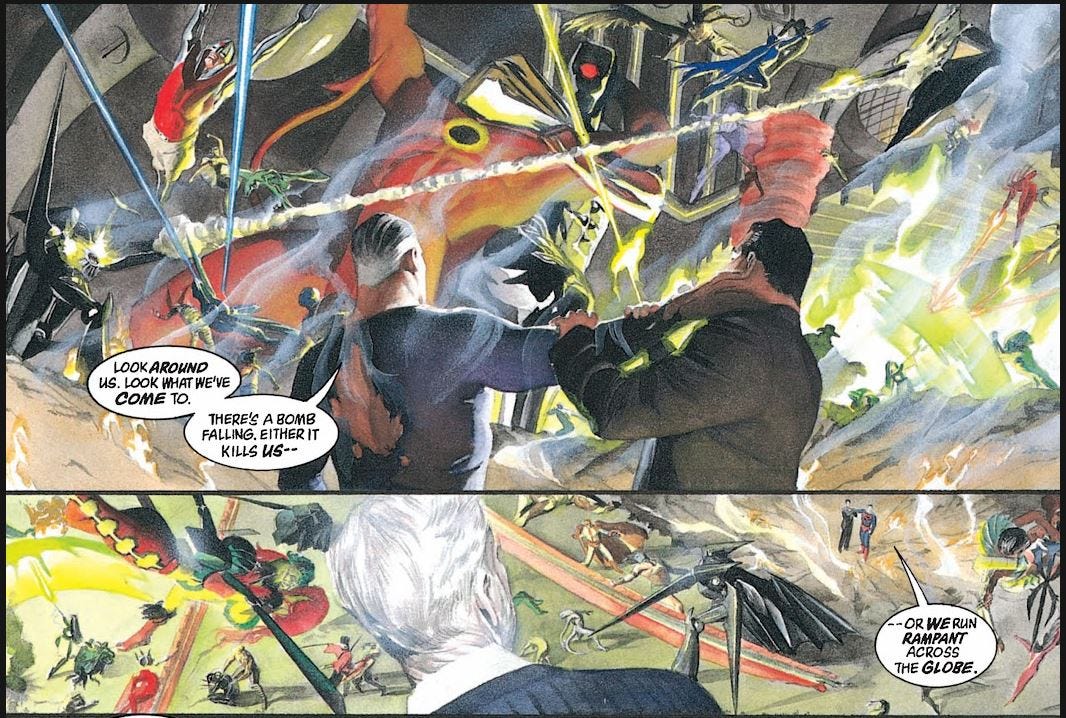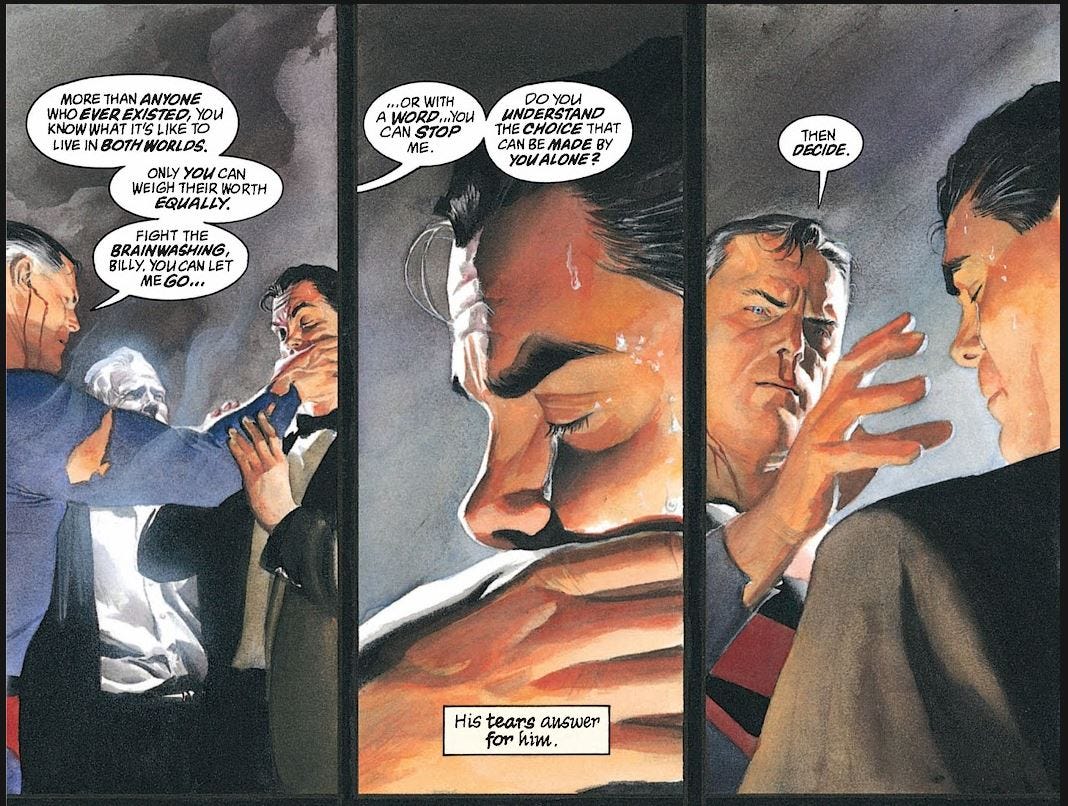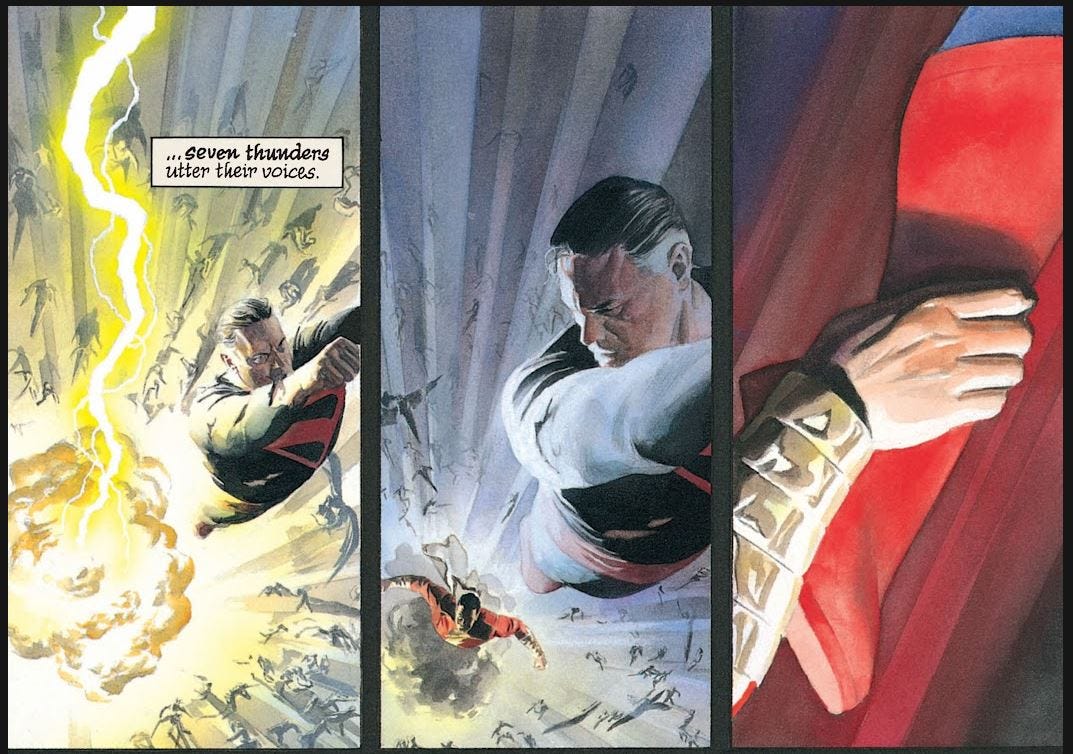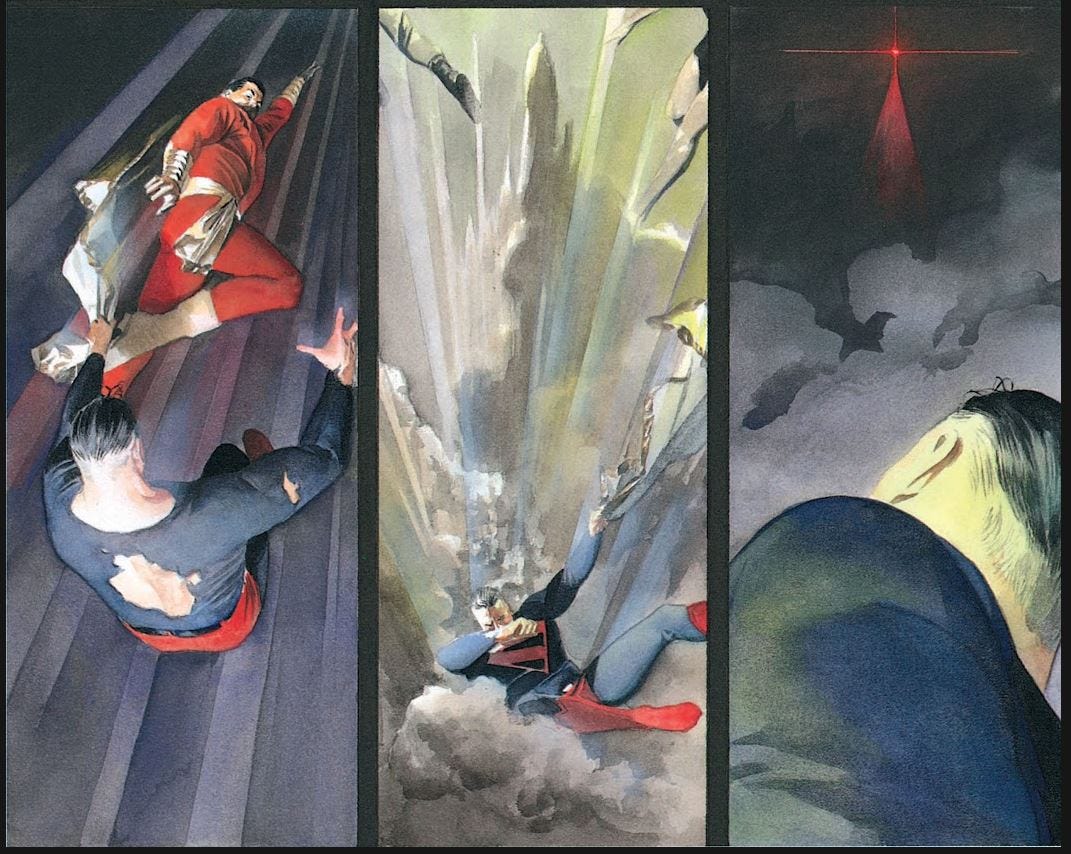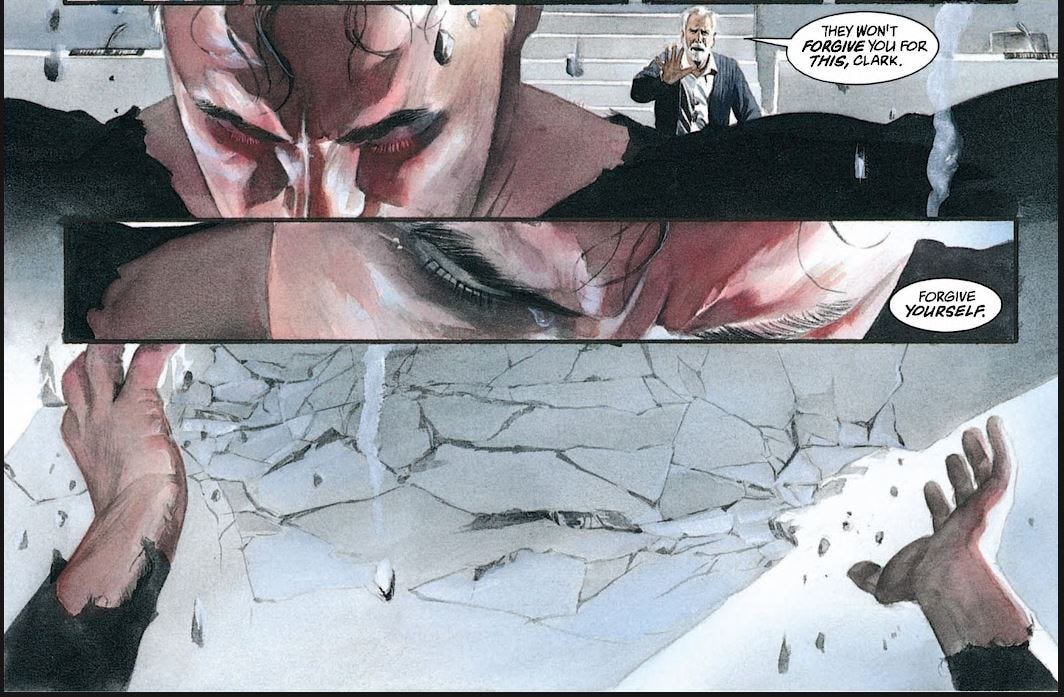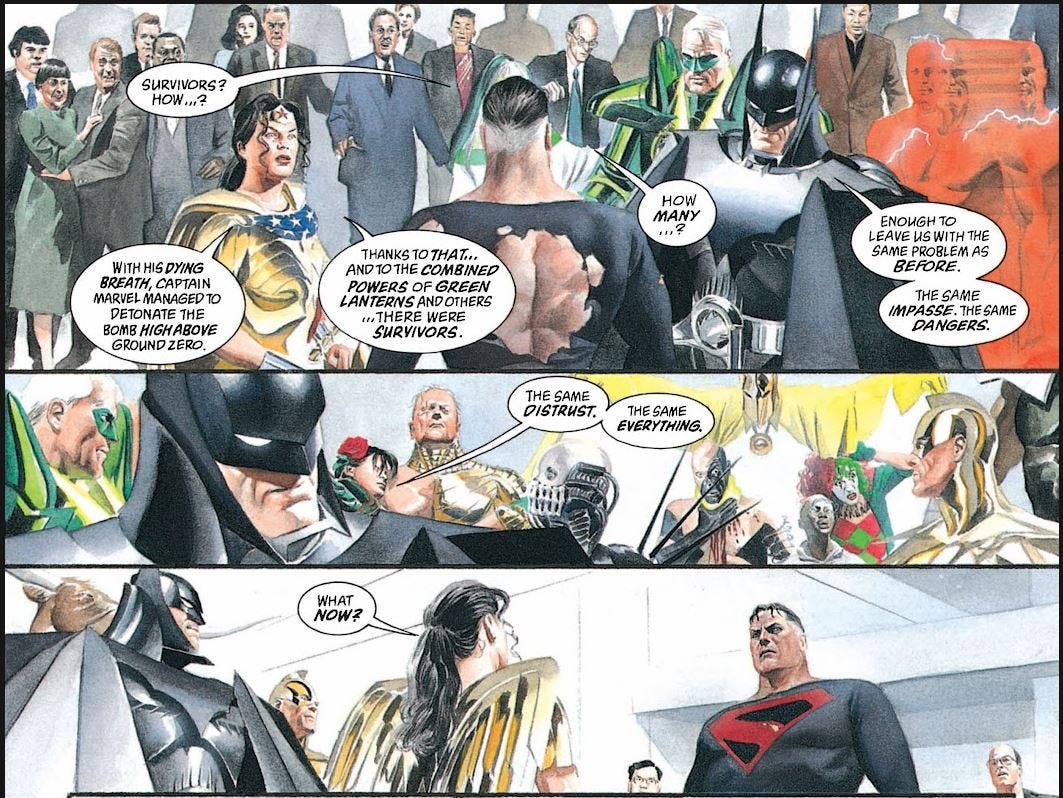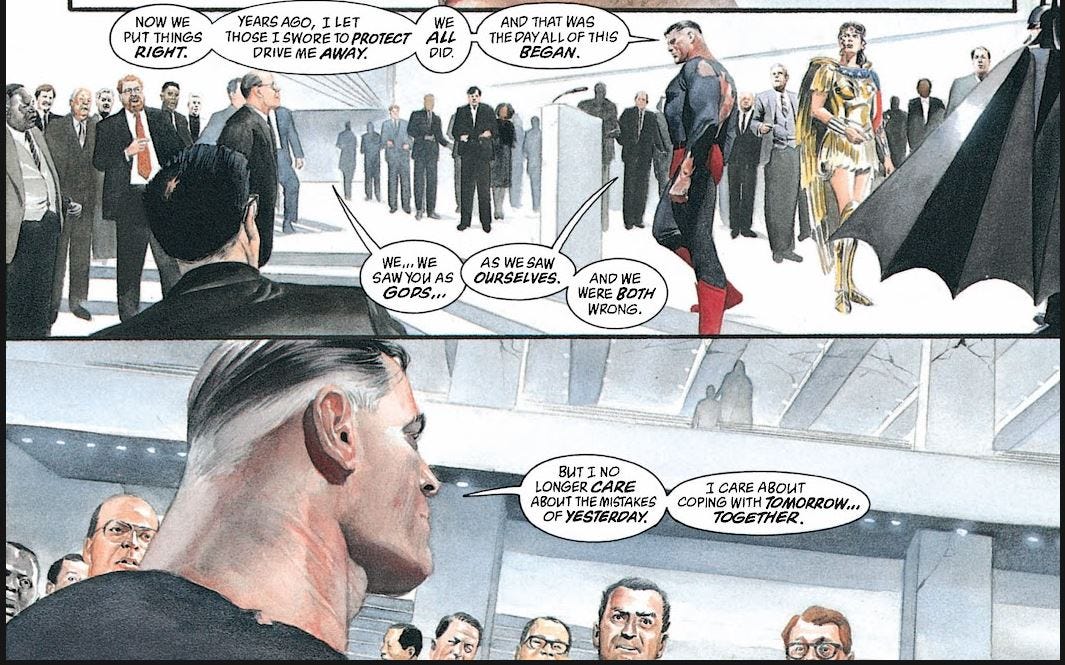Goddammit Mark Waid. You got me. I’ve read Kingdom Come something like three or four times over the years and each time I felt like I found some new dimension or wrinkle to the story. This time, it made me angry.
Kingdom Come was originally published as a four issue Prestige-format miniseries from May-August 1996 written by Mark Waid with art by Alex Ross, who also came up with the concept for the story. On DC’s website, the story is described as,
In the near future, the DC Universe is spinning out of control. The new generation of heroes have lost their moral compass, becoming as reckless and violent as the villains they fight. The previous regime of heroes—the Justice League—returns under dire circumstances, which sets up a battle of the old guard against these uncompromising protectors in a conflict that will define what heroism truly is.
Wikipedia sums up the setting of the story stating,
In the near future, the new generation of metahumans becomes increasingly violent and reckless, engaging in destructive battles with little distinction between heroes and villains. Notably, 10 years before the main story, a superhero named Magog kills the Joker in retaliation for a mass murder of the Daily Planet staff, including Lois Lane. Magog being acquitted during the trial and subsequently gaining public support prompts Superman to retire and Wonder Woman to be exiled from Themyscira, with other superheroes following suit. With the apocalypse drawing near, the Spectre recruits minister Norman McCay, having received visions from a dying Wesley Dodds, to help pass judgement when the moment arrives.
That’s where things stand as we begin. Superman has left society for a farm he created in his Fortress of Solitude. He keeps tabs on the wider world but wants nothing to do with it. Wonder Woman tries to get him to return to lead their generation of heroes to help guide and reign in the younger generation of metahumans that are running amok around the globe. Finally he returns, but something doesn’t seem right. The first hint was his insistence that Wonder Woman not call him Clark. From there Superman went on to make bad, misguided, and self-righteous decisions that have the exact opposite of the desired effect.
This is where I started to get mad. This behavior is completely contradictory to the character of Superman. And on top of that, he’s kind of a dick throughout the story. None of it made sense.
Eventually, Superman and his reformed Justice League build a Gulag in the middle of the wasteland that was Kansas. It wasn’t a prison, as a recording of Superman explained to those being held against their will –
Obviously this was a terrible, TERRIBLE idea that blew up in his face.
So, the fit seriously hit the shan and a horrible battle ensued. In the center of it all stood Superman and Captain Marvel locked in a stalemate. Captain Marvel had been manipulated and brainwashed by Lex Luthor, hence the punching of Superman. In the midst of the fight, which if not stopped or contained could engulf the entire planet, the United Nations authorized the use of a special type of nuclear warhead to be dropped on the combatants.
In their battle, Captain Marvel gained the advantage by using the magic lightning that transforms him against Superman. Until…
In a fit of blind rage, Superman flies off to the UN headquarters to exact revenge. But it is in that moment of utter despair, that he is reminded of his humanity.
Superman is saved by the words of a kind, gentle, man who reminds the Man of Steel who he really is.
And when he discovers that there were survivors and what Captain Marvel did, Clark found himself, becoming the hero and beacon of hope he was always meant to be.
This is where Mark Waid got me. I got choked up multiple times reading the end of Kingdom Come because he and Alex Ross nailed it.
Superman succumbing to despair and feeling above others after a horrific trauma is so very human. But what makes Clark a good person is that, with help, he dug himself out from his anguish and gloom to do the right thing. He recognized his mistakes, took ownership of and responsibility for them, and moved forward looking for solutions and how he can help.
I think that the message and moral of Kingdom Come is more poignant today than it was when it was first published 30 years ago. The story was born out of and a reaction to the comics of the 1990s, especially those from Image Comics.
Waid and Ross wrote Kingdom Come as an indictment against the growing trend of violent anti-hero archetypes that had sprung out of the early 1990s, many of whom were created by DC's independent rival company Image Comics.
What made me angry this time around was the vide of “these damn kids today” early in the book. One of my absolute pet peeves is older generations shitting on the younger generations. I have been guilty of it myself but like Clark, I learned the error of my ways. Nothing productive ever comes from yelling at the kids to get off your lawn.
The thing about reading Kingdom Come in 2025 is that the Armageddon it foretold feels a lot closer to home. Let’s hope that we as a society can learn from our mistakes and focus on making a better future instead of finding blame for the past.
References
Kingdom Come. (n.d.). DC. Retrieved May 19, 2025, from https://www.dc.com/graphic-novels/kingdom-come-1996/kingdom-come
Kingdom Come (comics). (April 5, 2025). In Wikipedia. https://en.wikipedia.org/w/index.php?title=Kingdom_Come_(comics)&oldid=1284053089
Kingdom Come (1996—1996). (n.d.). DC database. Retrieved May 19, 2025, from https://dc.fandom.com/wiki/Kingdom_Come_Vol_1
Waid, M, & Ross, A. (2019). Kingdom come. DC comics.

